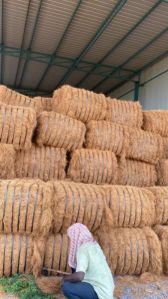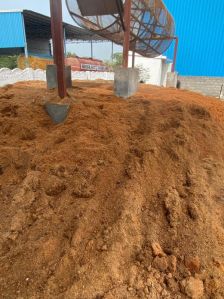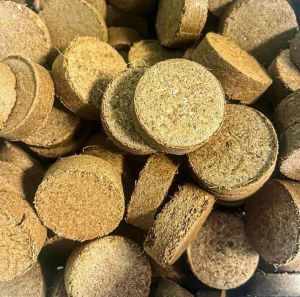
Coir Fiber Bale
10 - 15 Per Kilogram
5 Ton (MOQ)
Coir pith bundle 45 kg to 50 kg Coco coir Coco fiber Coco coir bhale
Application : Geo-Textile, Coir Spring Mattresses, Furniture, Erosion Control And Drainage Filterin
Specialties : Eco-Friendly
Country of Origin : India
Purity : 98%
Color : Orange
Material : Coconut Fiber
...more
cocopeat powder
2 - 5 Per kilogram
10 Ton (MOQ)
Cocopeat, also known as coir pith or coconut coir, is a natural byproduct of coconut processing. It's made from the fibrous husk of coconuts and is commonly used as a growing medium in gardening and horticulture. Here are some key features and benefits of cocopeat: Water Retention: Cocopeat has excellent water retention properties, making it ideal for maintaining moisture in soil. Aeration: It provides good aeration for roots, promoting healthy plant growth pH Neutral: Cocopeat typically has a neutral pH, which is beneficial for a wide range of plants. Sustainable: Being a renewable resource, cocopeat is an eco-friendly alternative to peat moss. Nutrient Retention: It can hold nutrients well, helping to support plant health. Biodegradable: Cocopeat is fully biodegradable, making it a sustainable choice for gardening. Lightweight: It's lighter than traditional soil, which can be beneficial for container gardening. Cocopeat can be used alone or mixed with other growing mediums like soil, perlite, or vermiculite, depending on the needs of the plants
Country of Origin : India
Color : Brown
Moisture : 10-20%
Form : Powder
...more
Coco Peat Pellet
2 - 5 Per Piece
100 Piece (MOQ)
Material : Coco Peat
Color : Brown
Country of Origin : India
Application : Used as Energy or Heat Source for Cooking in Households and Drying for Agricultural Products.
...moreBe first to Rate
Rate ThisOpening Hours